July 19th, 2014
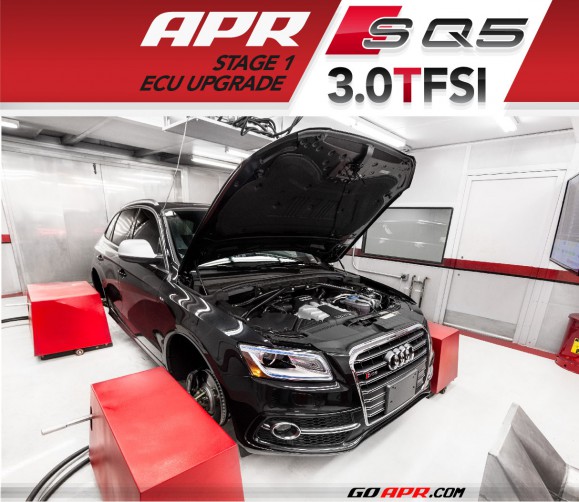
APR is pleased to present the ultimate engine control unit (ECU) upgrade for the Audi SQ5 3.0 TFSI V6. APR’s ECU upgrade is available in octane-specific variations and is conveniently flashed to the vehicle’s factory ECU through the OBD-II port without any physical modification to the factory ECU.
The APR Stage I ECU Upgrade is designed to work without requiring other changes to the vehicle’s hardware. With the ECU Upgrade alone, APR’s Calibration Experts measured higher peak figures of 403 horsepower and 371 ft-lbs of torque with …
May 10th, 2014
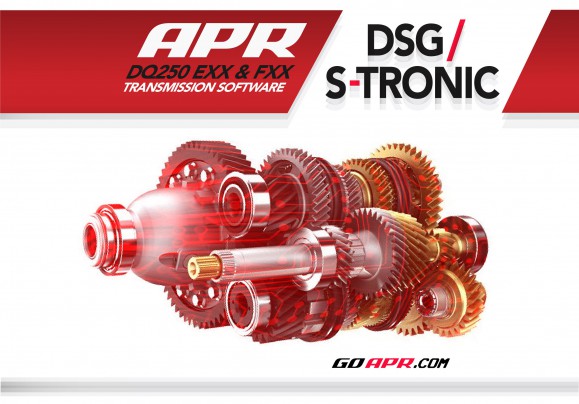
APR is pleased to present the ultimate transmission control unit (TCU) upgrade for the DQ250 Exx & Fxx DSG and S tronic transmissions! APR’s TCU upgrade is available in engine and power level specific variations and is conveniently flashed to the vehicle’s factory TCU through the OBD-II port. APR’s patented DirectPort Programming Suite allows the end user to customize the TCU upgrade to their individual needs.
APR’s TCU upgrade enhances the driving experience by incorporating many of the same features typically reserved for high-end Audi Quattro GmbH RS models. Under blistering, …
April 21st, 2014
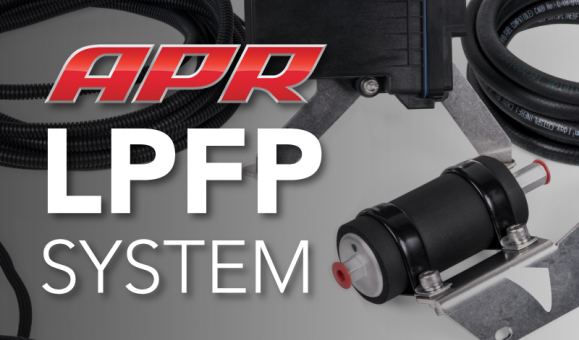
APR is pleased to present the ultimate low pressure fueling system upgrade for the VAG EA113 and EA888 2.0T engines!
The APR Low Pressure Fuel Pump (LPFP) Upgrade is designed to ensure the low pressure fueling system is capable of delivering the proper volume of fuel from …
April 20th, 2014
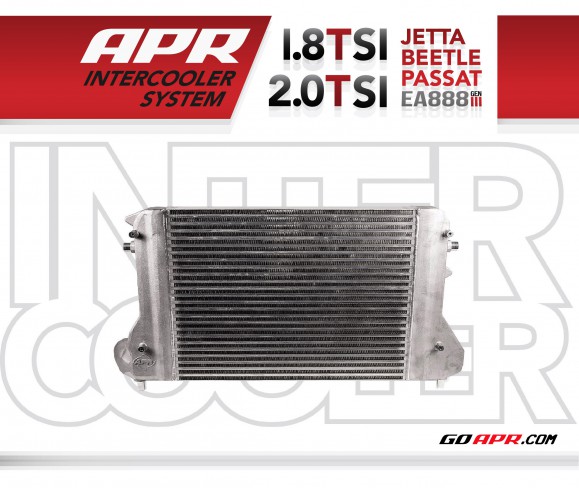
APR is pleased to present the ultimate Front Mount Intercooler System for the transverse 1.8T and 2.0T direct injected engines!
The …
April 20th, 2014
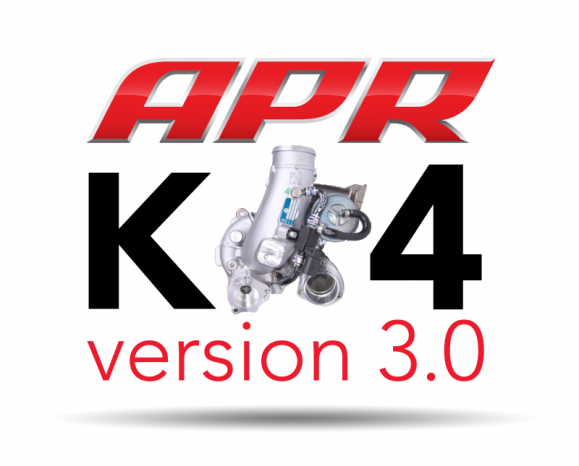
APR’s Engineering Teams have finished final testing of new version 3.0 K04 Turbocharger software for the 2.0 TSI/TFSI EA888 Gen 1 engine. The new ECU Upgrade improves upon power delivery on top of what was previously a tremendous upgrade over stock! Amidst …
April 20th, 2014
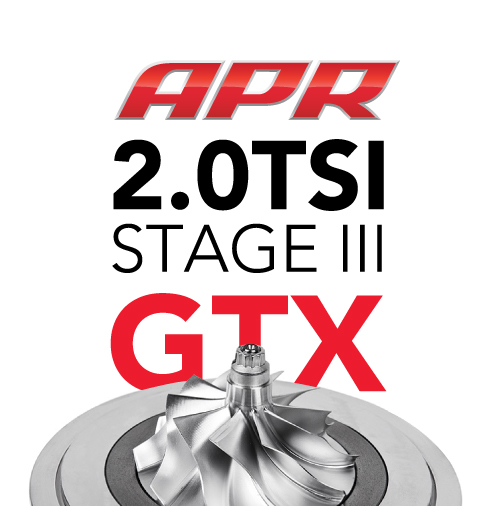
With the introduction of the Garret GTX2867R Turbocharger, APR has raised the bar further and redefined the standard by which the VAG community measures performance, reliability, drivability and quality. Gone are the days of compromise where low-end response meant excessive backpressure, compressor surge, and extremely limited top end performance. True to APR’s mantra of Performance without Compromise the days of shredding tires …
April 4th, 2014
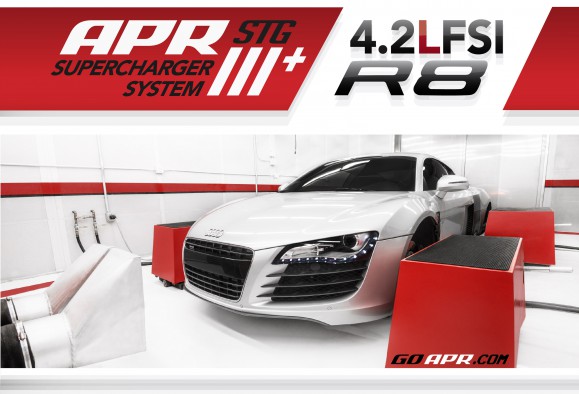
APR Presents the R8 4.2L FSI V8 Stage III+ TVS1740 Supercharger System!
In the factory form, Audi’s high revving FSI V8 can leave much to be desired compared to some of the latest technological advances brought forth by Quattro GmbH in recent years. The APR Stage III+ TVS1740 Supercharger System fills the void by adding an average of roughly 46% more horsepower and torque across the entire power band. The results are nothing short of amazing; taking the R8 from 425 horsepower to 642 horsepower on …
April 2nd, 2014
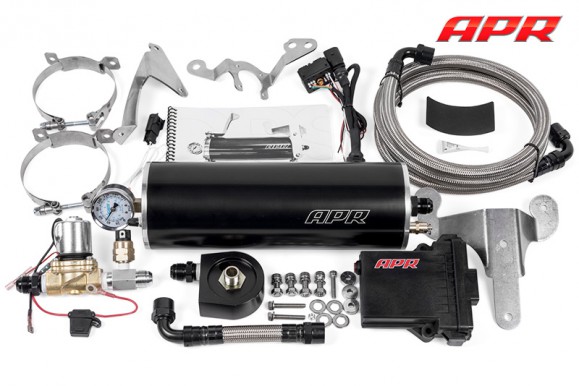
APR is pleased to present the Oil Protection System (OPS) for the 2.0 TSI EA888 engine. The OPS is designed to protect the engine from oil starvation, which can cause immediate engine failure. Many of you are already familiar with this product but we’ve recently updated it to include a new universal APR Auxiliary ECU Controller that will be used on other upcoming products. …
March 8th, 2014
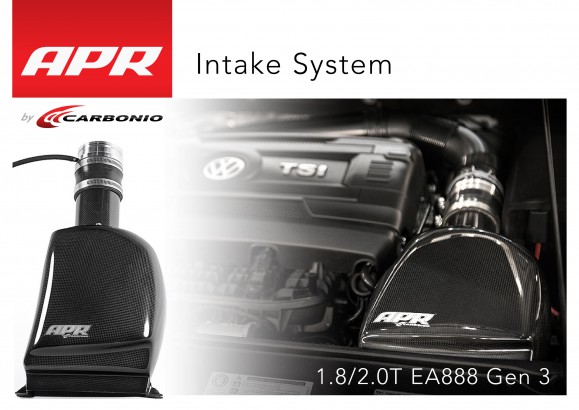
APR’s pleased to announce the APR Carbonio Intake System is now available for all new 1.8/2.0 EA888 Gen 3 engine found in the latest VW Beetle, Jetta, and Passat. With average peak gains of 12 HP and 11 ft-lbs of torque over the stock intake, this intake makes for an excellent dollar per horsepower modification. Read more on our product page.
February 8th, 2014
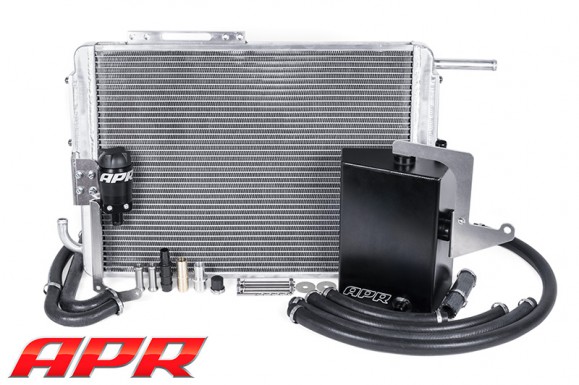
APR is pleased to present the second iteration of the Coolant Performance System (CPS) for the Audi 3.0 TFSI Engine as found in the B8/B8.5 A4/S4 and A5/S5.
Through extensive motorsport testing in the Grand-Am Road Racing series, and high boost pressure testing utilizing a larger supercharger, APR’s engineers were able to significantly improve the 3.0 TFSI’s supercharger cooling system. The updated system not only improves performance, but also improves overall engine reliability by keeping components well within their desired operating temperatures. Read More









